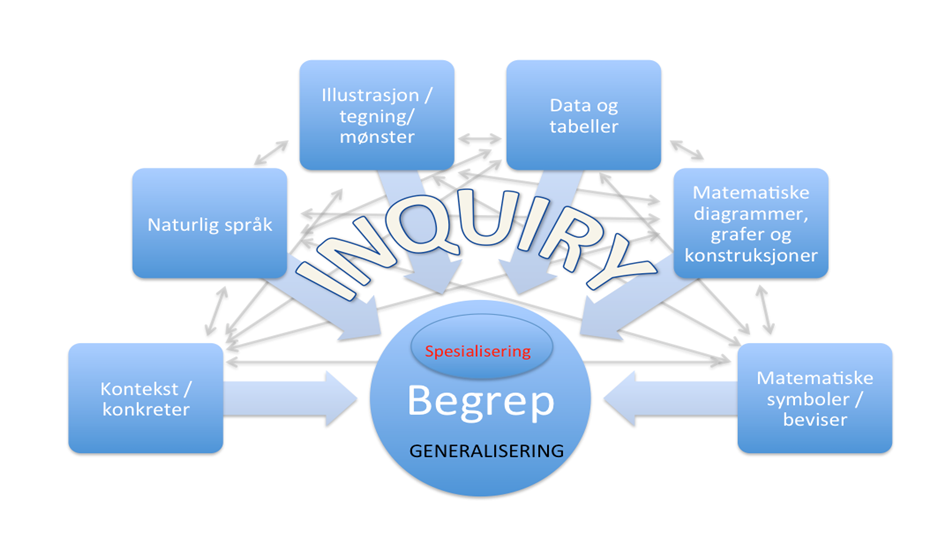Modell for meningsfylt algebraundervisning

En idé til en epistemologisk1 modell for meningsfylt algebraundervisning. Den bygger på Steinbrings (2006) epsitemologiske trekant, Duvals (2006) representasjonsregistre, Janviers (1987) translasjonsprosesser og Bergs (2013) drøftinger relatert til det syntaktiske og semantiske aspekt ved algebra.
Note1 Epistemologi kalles ofte for erkjennelsesteori og epistemologien arbeider med spørsmålet om hvordan man oppnår kunnskap (hentet 10. mars 2015 fra: http://filosofi.no/epistemologi/). Ordet kan også forklares med læren om kunnskap (hentet 10. mars 2015 fra: http://radikal.net/filosofi/epistemologi/). I ordbøker forklares epistemologi: læren som grunnlaget for all viten eller vitenskapsteori (hentet 10.mars 2015 fra: http://www.nob-ordbok.uio.no/perl/ordbok.cgi?OPP=+Epistemologi&bokmaal=+&ordbok=bokmaal
Referanser:
Berg, C. V. (2013). Introducing an inquiry-based approach in mathematics teacher education: focus on student teachers’ reflections. In B. Grevholm, P. S. Hundeland , K. Juter, K. Kislenko, & P. E. Persson (Eds.), Nordic research in mathematics education, past, present and future. Oslo: Cappelen Damm.
Duval, R. (2006). A cognitive analysis of problems of comprenhension in a learning of mathematics. Educational Studies in Mathematics, 61, 103-131. doi: 10.1007/s10649-006-0400-z
Janvier, C. (1987). Translation processes in Mathematics education. In Janivier, C. (Eds.), Problems of representation in the teaching and learning of mathematics. New Jersey: Lawrence Erbaum Associates.
Steinbring, H. (2006). What makes a sign a mathematical sign? – An epistemological perspective on mathematical interaction. Educational Studies in Mathematics, 61, 133-162. DOI: 10.1007/s10649-006-5892-z
